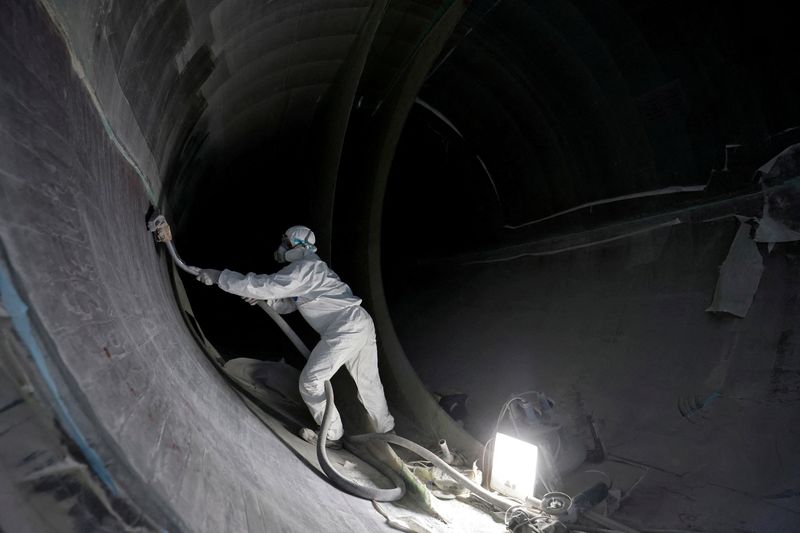Robust demand boosts India factory growth in June, PMI shows
2024.07.01 02:29
By Shaloo Shrivastava
BENGALURU (Reuters) – Activity in India’s manufacturing sector rebounded last month as output increased on robust demand, leading to the fastest rate of hiring in over 19 years, despite inflationary pressures remaining elevated, a survey showed.
Strong demand is a much needed ingredient for growth in Asia’s third-largest economy, which is the fastest growing among major economies, but much of the expansion is attributed to the government’s infrastructure spending.
The HSBC final India Manufacturing Purchasing Managers’ Index, compiled by S&P Global, rose to 58.3 in June, marginally below a preliminary 58.5 estimate, from a three-month low of 57.5 in May.
“The Indian manufacturing sector ended the June quarter on stronger footing,” said Maitreyi Das, global economist at HSBC.
“While the overall outlook for the manufacturing sector remains positive, the future output index receded to a three-month low, albeit it remains above the historical average.”
Upbeat demand lifted the output and new order sub-indexes in June, stretching the current sequence of expansion to three years. Growth in international demand eased in June, but stayed above the long run average.
Bigger workloads generated more jobs. Hiring increased for a fourth consecutive month and at the sharpest rate since the survey began over 19 years ago.
This was despite business sentiment falling to a three-month low, however, it remained strong and above the long-run average.
An improvement in hiring would bring some respite to the ruling Bhartiya Janta Party, which has lost its parliamentary majority, and had to form its third-term government with the support of regional parties.
Creating jobs would be the biggest challenge for the government over the next five years, a Reuters poll of policy experts found.
Inflationary pressures remained elevated, the PMI survey showed. While cost prices increased at a marginally slower pace from May, prices charged to customers rose at the fastest pace in two years.
“Manufacturers were able to pass on higher costs to customers, as demand remained robust, resulting in improved margin,” added Das.

However, inflation will average near the mid-point of the Reserve Bank of India’s (RBI) target range of 2-6%, at 4.6% and 4.5% in the current and next fiscal years, the latest Reuters survey showed.
The RBI was expected to lower its interest rate next quarter by 25 basis points to 6.25%, followed by another cut of the same size in the January-March quarter, the Reuters survey showed.








